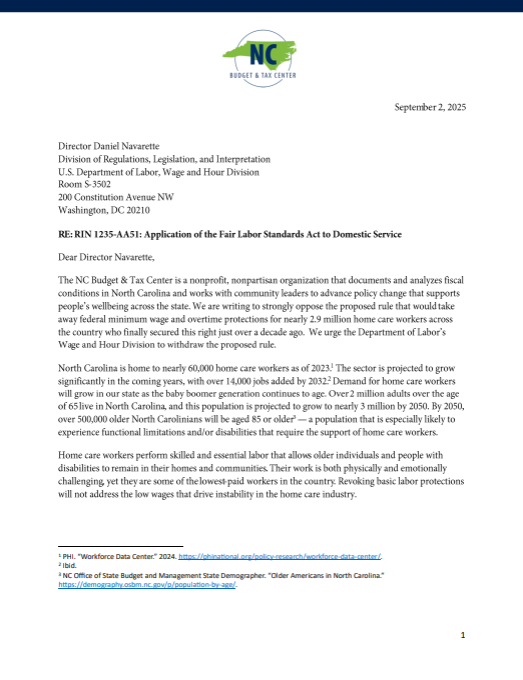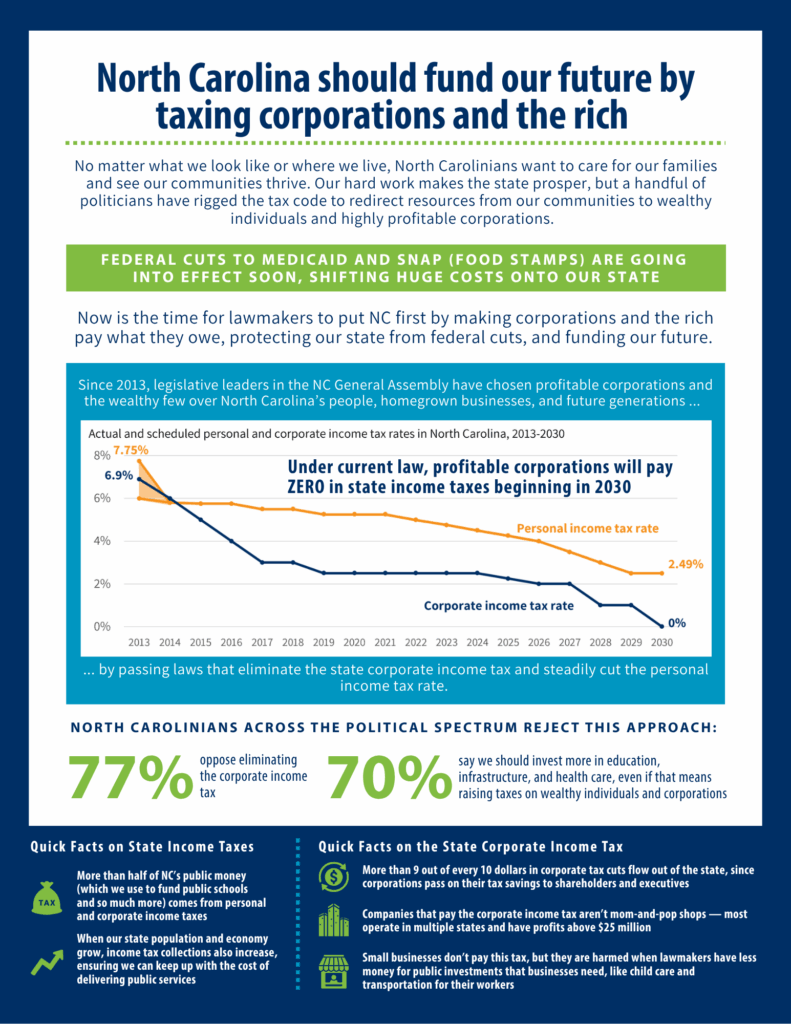Public Comment: DOL Rollback of 2013 FLSA Rule Change

The NC Budget & Tax Center believes that all workers deserve dignity, respect, and to be paid a living wage for their work. Historically, domestic workers were excluded from most legal workplace protections in the Federal Labor Standards Act (FLSA), a federal law first passed in 1938. The FLSA required employers to pay most workers at least the federal minimum wage and to pay overtime rates to hourly employees that work more than 40 hours per week. In 1974, Congress amended the law to include many domestic workers for the first time, but some workers who provide care for elderly and disabled people were still denied basic protections. In 2013, after years of organizing and advocacy from domestic workers, the federal Department of Labor issued new regulations that extended minimum wage and overtime protection to professional care workers who work for third party employers, often known as home care agencies.
Home care workers perform skilled and essential labor that allows elders and people with disabilities to remain in their homes and communities. Home care will only become more important as baby boomers age — 2 million people over age 65 live in North Carolina, and that population is projected to grow to 3 million by 2050. Even though care work is physically and emotionally challenging, home care workers get some of the lowest pay in the country. Like most domestic workers, they are disproportionately women of color and immigrant women. Their exclusion from basic labor protections is rooted in a long history of gender- and race-based discrimination that devalues essential labor that we all rely on.
Under the second Trump administration, the Department of Labor has proposed rolling back the 2013 rule change and again excluding care workers employed by home care agencies from minimum wage and overtime protections. The proposal was opened to public comment, and BTC submitted a comment letter opposing the change. To truly address the needs of home care workers and everyone who relies on them, we need to raise their pay and improve working conditions, including through increasing Medicaid provider payments. The Department of Labor’s proposed rule change would undermine the goal of raising worker pay at a time when the federal Medicaid cuts and underfunding at the state level are already threatening to drive wages even lower. The result would be more workers leaving the field, and less access to high-quality home-based care in communities across our state.
Read our comment letter here.
Learn more from the National Domestic Workers Alliance: Domestic Workers Bill of Rights



